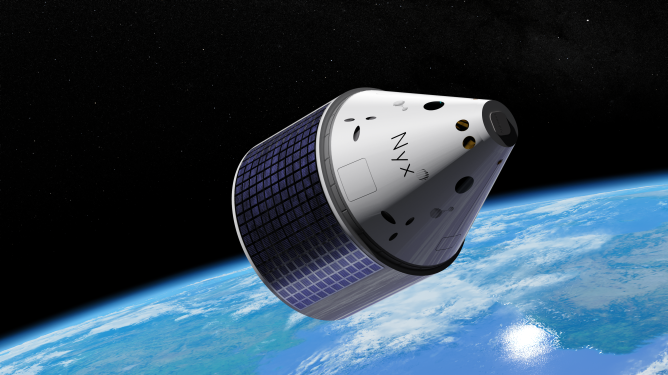Breaking the Monopoly: The Exploration Company Aims to Revolutionize Cargo Delivery to and from the International Space Station
The space industry has been dominated by a few major players for far too long. However, with the rise of private companies like SpaceX and the European Space Agency’s (ESA) efforts to foster native space capabilities, there is now an opportunity for new entrants to join the market. The Exploration Company, a startup founded by aerospace engineer Hélène Huby in 2021, is one such company that is looking to disrupt the status quo.
A New Player Enters the Scene
The Exploration Company has just closed a significant funding round of $160 million, bringing its total funding to over $208 million. This Series B round was led by Balderton Capital and Plural, with participation from Bessemer Venture Partners, NGP Capital, and two sovereign European funds, French Tech Souveraineté and DeepTech & Climate Fonds.
A New Reusable Space Capsule
The funding will be used to further develop the Nyx spacecraft, which is designed to carry 3,000 kilograms of cargo to and from Earth. The company’s goal is to conduct its maiden flight to and from the International Space Station (ISS) in 2028.
Challenging the Dominant Players
Huby emphasized that her company is not trying to replicate what SpaceX has achieved with its Dragon capsule. Instead, she wants to create an alternative that will foster competition in the market. "We are trying to learn as much as possible from that [SpaceX’s achievements], we are inspired by what they have achieved," Huby said. "But we also believe the world needs more competition and we want, step by step, to build an alternative."
A Promising Start
The Exploration Company has already made significant progress in its development of cargo return services for the ISS. The company was awarded a study contract worth around €25 million ($27 million) from the ESA earlier this year. This contract will run through 2026, with additional competitive contract opportunities expected to follow.
Traction on the Commercial Side
The startup has also seen traction on the commercial side, with 90% of its $770 million contract backlog coming from private station developers Vast, Axiom Space, and Starlab. This is a promising start for the company, which is looking to build an alternative to the current dominant players.
A New Contract Structure
The structure of the LEO Cargo Return Service Contract resembles NASA’s Commercial Orbital Transportation Services program that was launched in 2006. This program resulted in multibillion-dollar transportation contracts to SpaceX and Orbital Sciences Corporation (now Northrop Grumman). The ESA is aiming to have at least one capsule launching to the ISS in 2028.
A Demonstrator Vehicle Launched
The Exploration Company’s first demonstrator vehicle launched on the maiden flight of Ariane 6 this summer, though it was not deployed due to an issue with the rocket’s upper stage. The second subscale demonstrator mission, called Mission Possible, is scheduled to launch on a SpaceX Falcon 9 next year.
A Path Forward
While there are many challenges ahead for The Exploration Company, Huby remains optimistic about its prospects. "We’ve been able to deliver on promises in the past three years," she said. "We’ve been able to meet our cash target every quarter. … The investors, they could see that we basically can deliver on time, on cost, on quality."
The Future of Space Cargo Delivery
As the space industry continues to evolve, it will be interesting to see how new entrants like The Exploration Company shape the market. With its reusable spacecraft and alternative contract structure, the company is poised to challenge the dominant players in the cargo delivery market.
Key Takeaways:
- The Exploration Company has closed a significant funding round of $160 million, bringing its total funding to over $208 million.
- The funding will be used to further develop the Nyx spacecraft, which is designed to carry 3,000 kilograms of cargo to and from Earth.
- The company’s goal is to conduct its maiden flight to and from the International Space Station (ISS) in 2028.
- The Exploration Company has made significant progress in its development of cargo return services for the ISS.
- The startup has also seen traction on the commercial side, with 90% of its $770 million contract backlog coming from private station developers Vast, Axiom Space, and Starlab.



